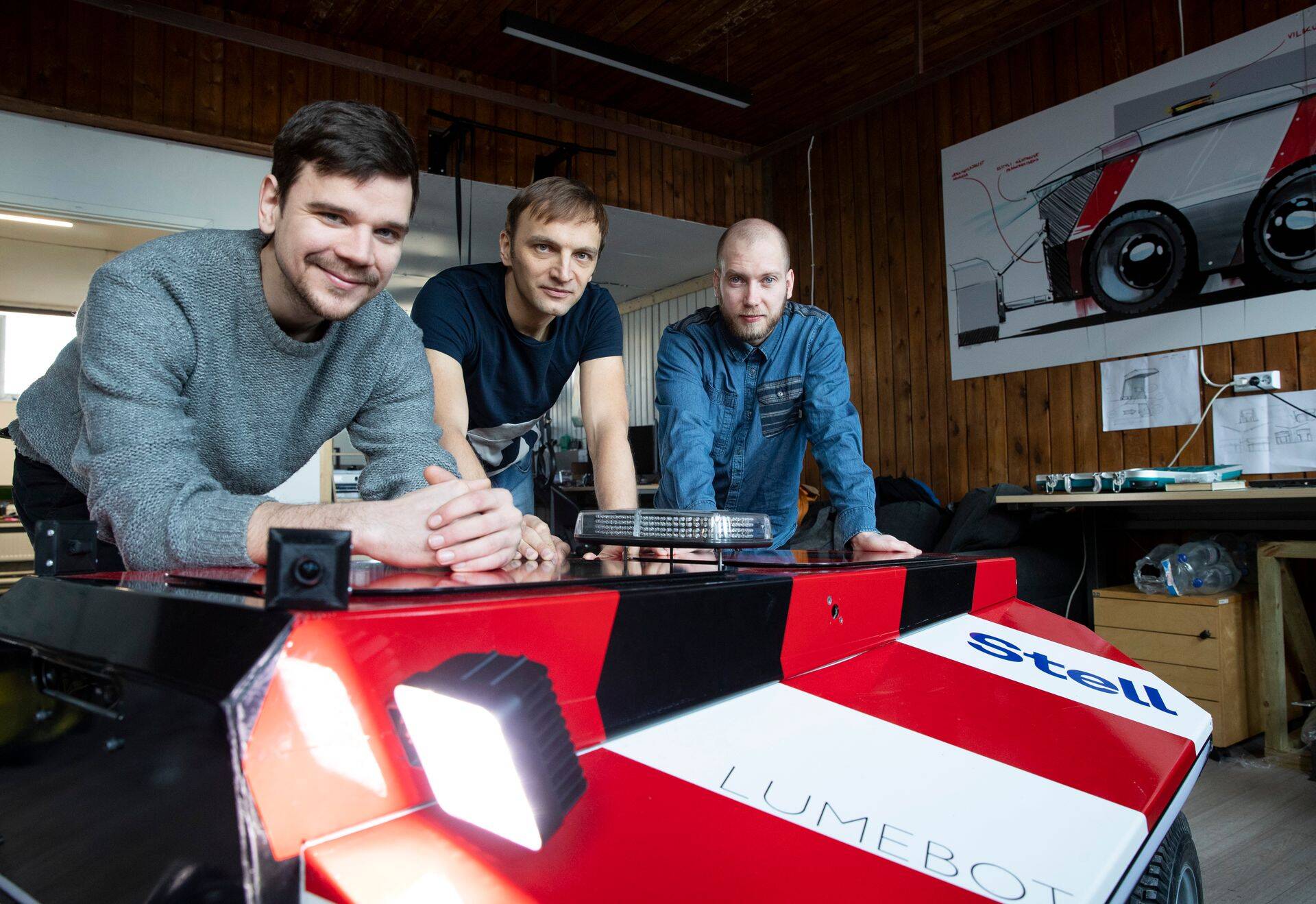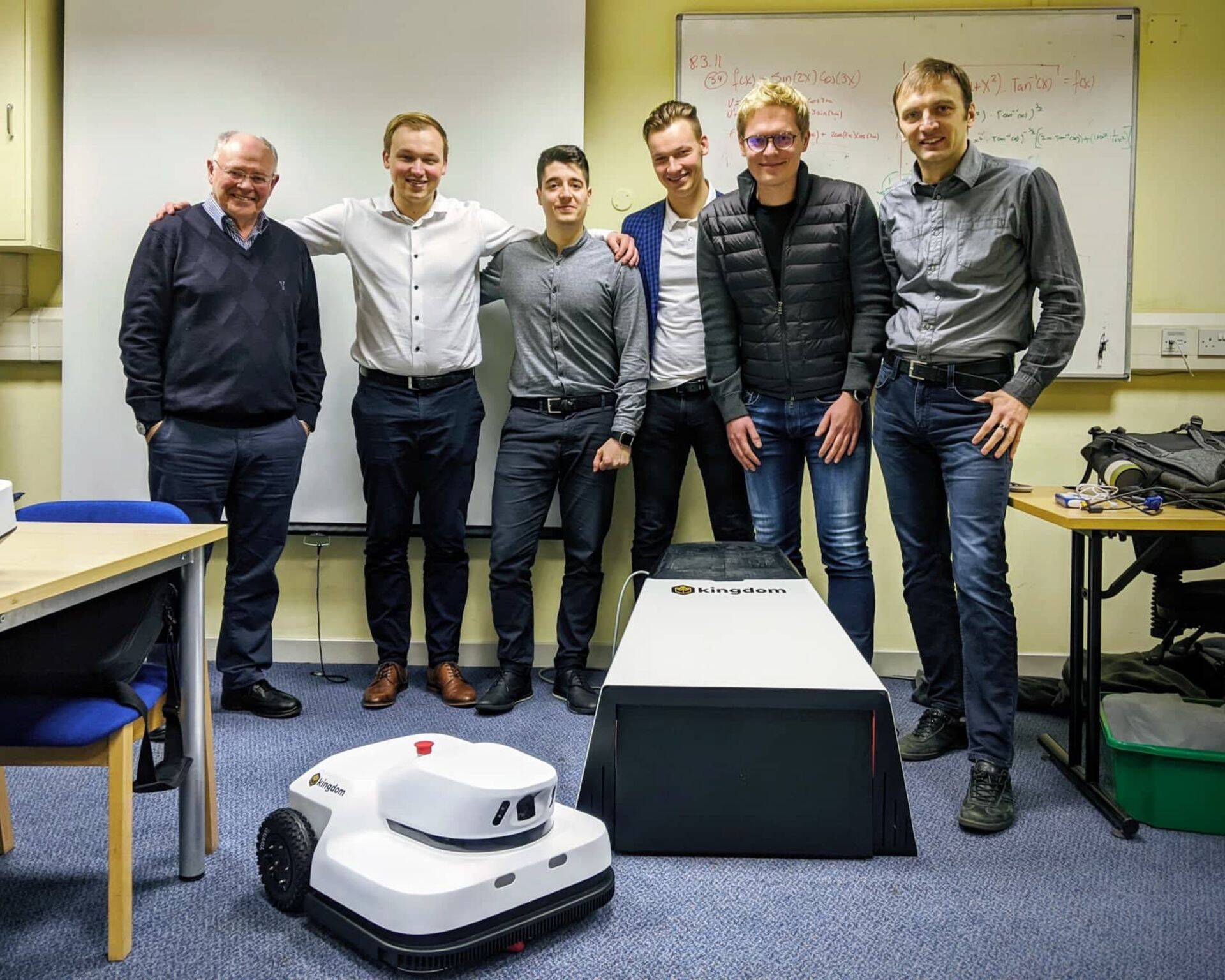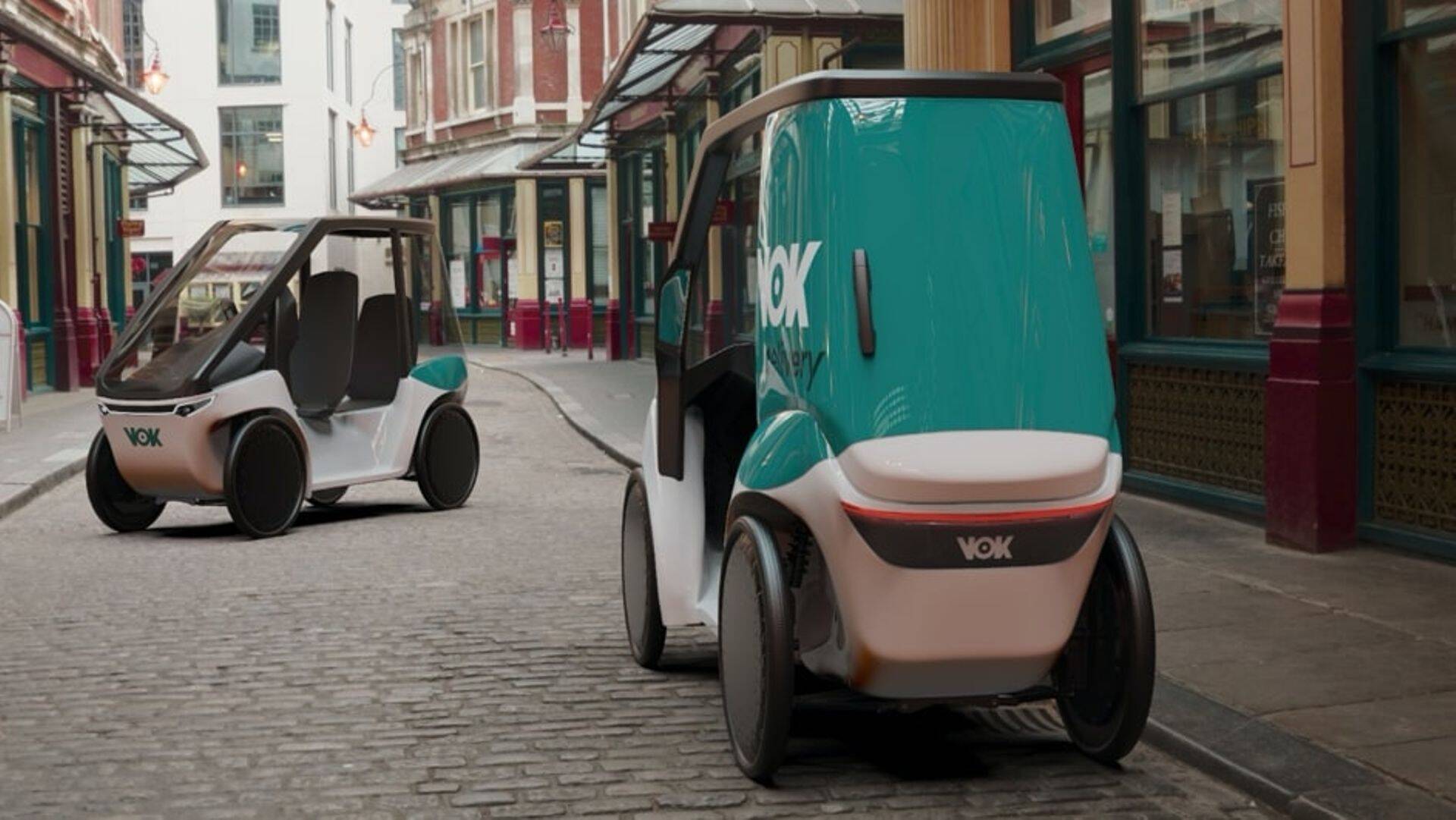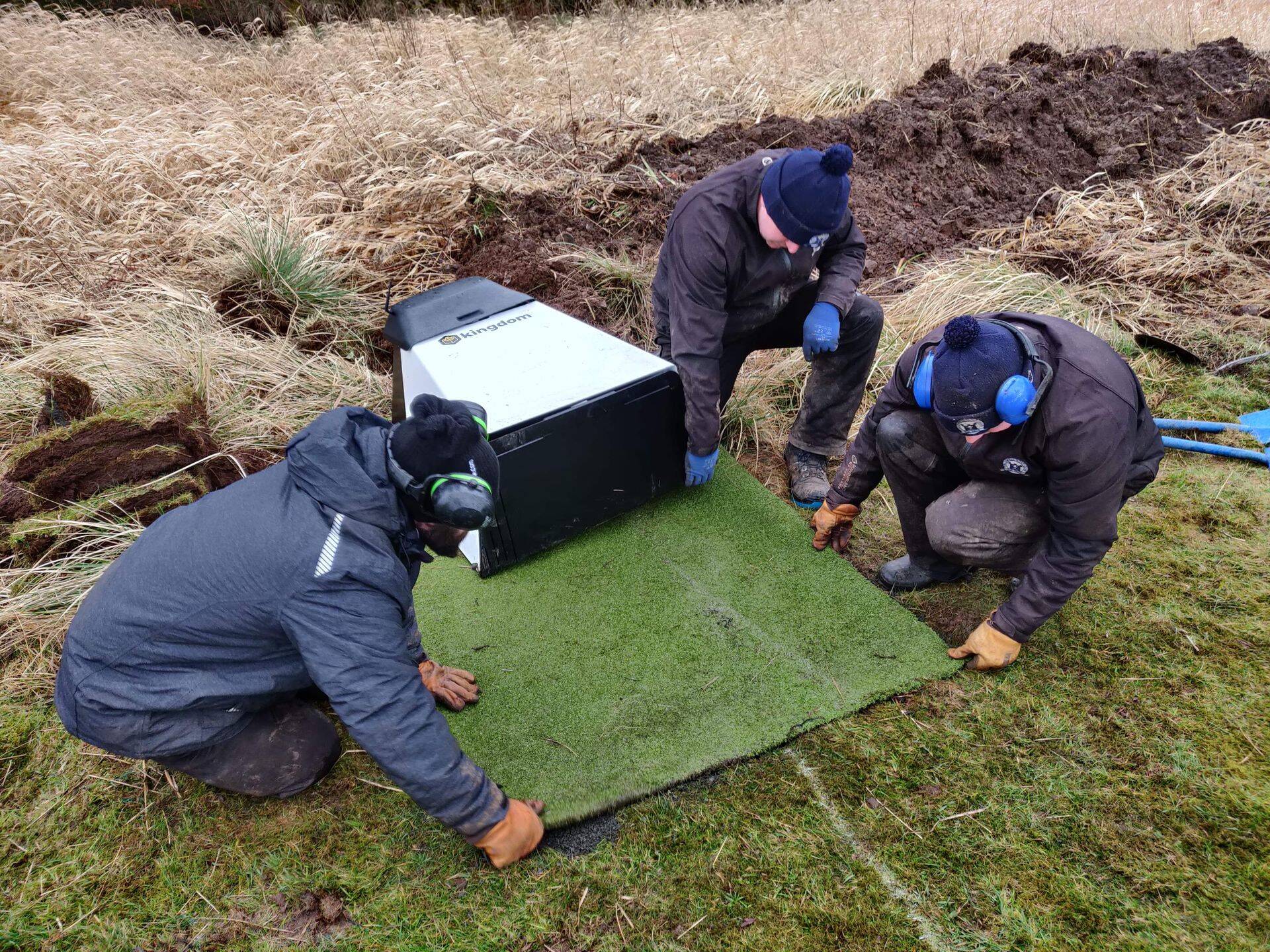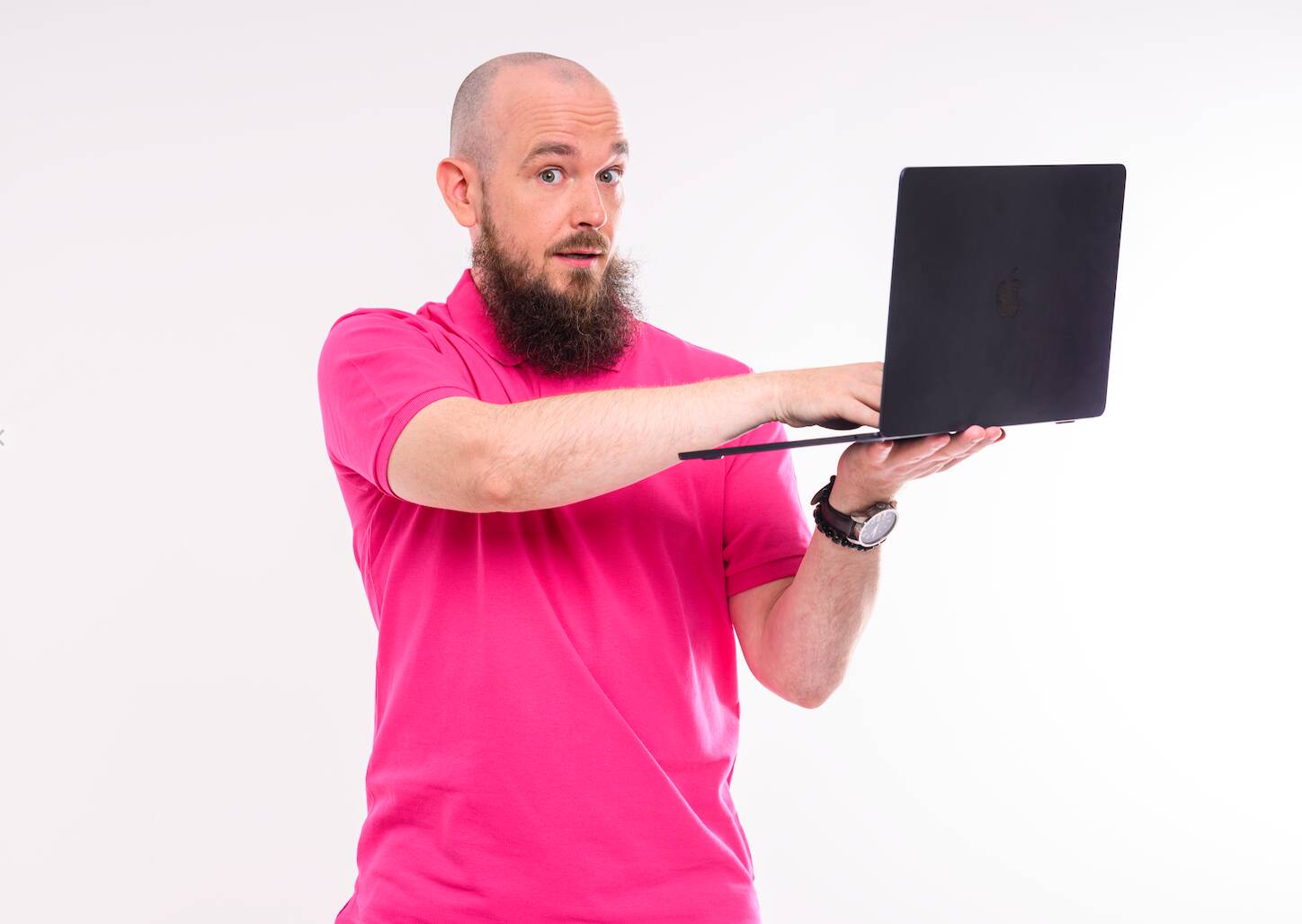Tähelepanu! Artikkel on enam kui 5 aastat vana ning kuulub väljaande digitaalsesse arhiivi. Väljaanne ei uuenda ega kaasajasta arhiveeritud sisu, mistõttu võib olla vajalik kaasaegsete allikatega tutvumine
Kingdom's Robotic Mowers Move Like Humans
More than three years ago a robotics company Kingdom Technologies started from a university project. It is now building ten times more efficient robotic lawnmowers than its competitors. The founder of the cutting-edge robots is an Estonian mechatronic scientist Joan Kangro.
The company is not short of competition, but Kangro knows his technology. The existing robotic lawnmowers normally work harder than they should, zigzagging around the lawn, to achieve the expected results. But the Kingdom robot plans its journey well, each area is crossed only once. The robot is able to cover ten times larger areas compared to competitors' robots of the same size.
The keyword is ‘algorithms’
"Today, robotic lawnmowers work with GPS, the positioning accuracy of which is around several meters. However, in order to ensure that the robot has the accuracy to follow a human-like trajectory, much higher precision is needed – down to 10 centimeters," Kangro explained.
The accuracy is achieved with innovative technology, using several different sensors to measure the position of the robot and combining the data. The company's main intellectual property is therefore not the hardware, but rather the algorithms that determine the robot's journey and measure its location.
Scottish science, nature and talent
After graduation, Kangro was up against a dilemma, where to continue with business development. One of the main reasons why he stayed in the UK was the large number of grants that startups can easily apply for. With grant money, the first version of the Kingdom robot was built.
Hetkel kuum
According to Kangro, the grants in the UK have led to a significant number of companies in life sciences and deep tech. Scotland provides millions in grants for R&D to overcome the first barriers of engineering innovations. Only then the private investors come in.
The large green areas and the soft climate of the birthland of golf also played a big role in the decision-making. The testing period of the robot would simply have been too short in Estonia. And then there is the issue of hiring talent. “There is also very little available talent in Estonia. To engage good people there, you have to pay magic numbers. In other words, the relationship between tech companies and talent is different in Estonia compared to Scotland. It is easier to find talent here," Kangro added.
A fan of Estonia
Currently, the company has no employees in Estonia nor is Kangro planning to return to his homeland anytime soon. Even so, the entrepreneur is very keen on the Estonian startup community. "Estonia has a very cool startup sphere. Our main mentors come from the Estonian robotics industry and tech companies. We have very similar challenges and we have learned a lot from them," he said.
In Kangro’s opinion, the Estonian startup landscape has a unique vibe. People want to help others without asking for anything in return. The company’s advisory board includes Riivo Anton, Veljo Otsason and Kangro’s brother Kristjan Kangro. „They all have hands-on experience with startups and help a lot," he said.
When the company was fundraising in 2019, it got the investors lined up. According to Kangro, Estonian investors stand out with their experience as entrepreneurs. They have built successful companies. "They have a good understanding of the challenges of startups and they can help you a lot. We were looking for investment from both countries, and when the funding round got overcommitted, we selected the most suitable syndicate, led by Estonian investors," he added. The funding round of € 446.000 was led by the Estonian investment funds United Angels VC and Superangel and included several other Estonian and Scottish investors.
Heading to the market
The Kingdom robot lawnmower is developed by an international team of engineers. In addition to Kangro, the team includes Sergio from Spain, Matthew from England and Giovanni from Italy. By the end of the summer the team is looking to hire a mechanical engineer, a data scientist and a COO of the company.
While the world’s lawn care market is over 24 billion, the robotic lawnmower market is still modest, but growing rapidly. Kangro's goal for this year is to put his robots to work across Scotland. The long-term goal includes markets of Southern parts of US and Europe, with a large demand for lawn care year-round.
Kingdom's first commercial pilot is operated by their third-generation robot and the fourth version is already under development. The company will be scaling by the end of this year, after testing tens of versions of the robot, rolled out every other month in exponentially growing batches for various commercial pilots. "We use machine learning technology algorithms to classify the soil and obstacles. Our algorithms for trajectory planning and positioning require a lot of diversity, which means that testing in one place for a year will not allow us to guarantee the quality of the software,” explained Kangro.
Currently, the Kingdom team offers B2B robot service to golf clubs, city councils and universities that have large spaces of lawn. The robot is so efficient that in an average household today it would stay idle 98% of the time. The long-term goal is to create a sharing economy lawn mowing service for residential areas, operated through a web application that can be provided at a low cost. Hopefully we’ll see their B2C service in Estonia no later than a year or two.
Seotud lood
Iga idu saab alguse ideest. Aga esimene asi, mida teised märkavad, pole sinu pitch deck ega MVP – vaid domeen. See on sinu startup’i esimene pitch. See on see, millega astud oma tiimi ette Slackis, jagad ideed angel investorile LinkedInis või paned selle Product Huntis avalikuks. Kui domeen kõlab nõrgalt, kõlab nõrgalt ka idee.
Enimloetud
Viimased uudised
Hetkel kuum
Liitu uudiskirjaga
Telli uudiskiri ning saad oma postkasti päeva olulisemad uudised.
Tagasi FoundMe esilehele

